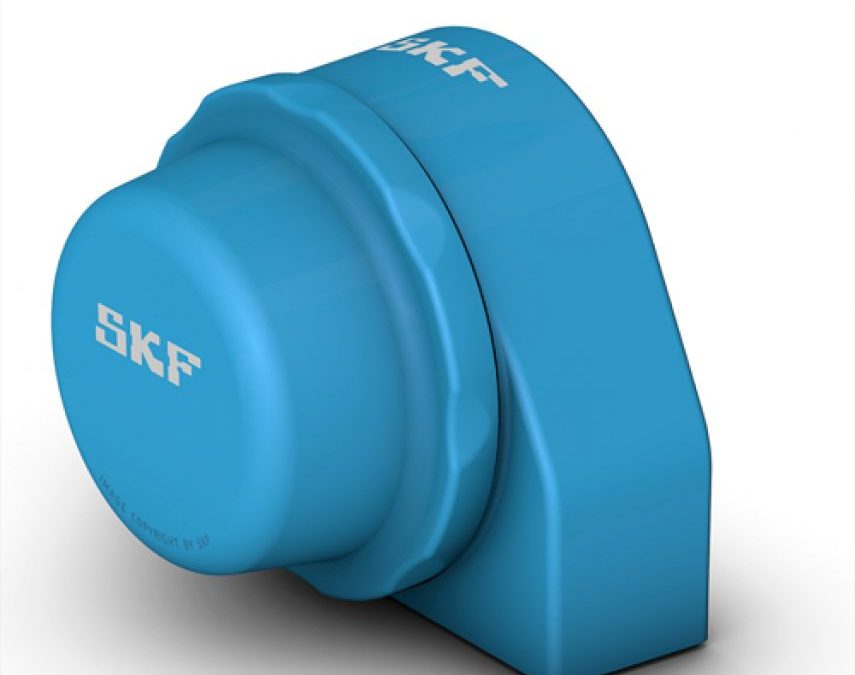WITH companies striving to perfect a proactive approach to food safety, SKF is launching the new Food Line ball bearing units – Blue Range, which extend a hygienic-design mentality to bearing unit components for food-processing equipment.
Since 2012, the food and beverage industry has seen a significant increase in units recalled. Against this background, proactive food safety has become the foremost concern for food and beverage executives.
That’s according to Victoria van Camp, CTO & President, Innovation and Business Development, SKF, who said that while the broader approach to addressing food safety is top of the priorities, understanding of contamination risks at the component level has been lacking, along with a solution to address it
“Companies have safety practices to protect their food product. These might include measures such as posted signs encouraging hand-washing or purchasing hygienically designed ‘food grade’ machines,” said Van Camp.
“The problem is, traditional relubrication, wash-downs, and dry cleaning of bearings can create hidden means by which contaminants thrive, such as airborne droplets, wastewater, or contaminated grease.
“Eliminating these food-safety threats requires a different approach to hygienic design, and that’s what the Food Line ball bearings – Blue Range are designed to deliver,” she said.
SKF has specifically developed its Food Line ball bearing units from a clean sheet of paper, component by component, to improve hygiene, performance, and compliance with food safety regulations
They feature an innovative sealing system, high performing bearing grease, and complete seal-ability of the units where it’s needed.
“This means OEMs can innovate the performance and hygienic design of their food processing equipment through bearing units that last longer, are relubrication-free and highly cleanable.
“As a result, food and beverage processing companies can reduce unnecessary risks to food safety – Hygienic design of the bearing units reduces risk of bacteria build-up in hard-to-clean areas and minimizes the spread of bacteria during cleaning.”
Furthermore, said Van Camp, the new bearings can lead to increased production uptime. “Because bearing units do not require relubrication, there is no need to stop equipment for lubrication activities and less time is required for cleaning excess bearing grease—reducing downtime and maximizing production opportunities.”
She said the Blue Range also eliminated relubrication costs and reduced bearing replacement frequency.
“And, it reduces environmental waste. With less hot water needed for cleaning, grease in waste water and components that can be 100% recycled and energy recovered, companies can foster a preventive, versus disposal-oriented, environmental culture.”

